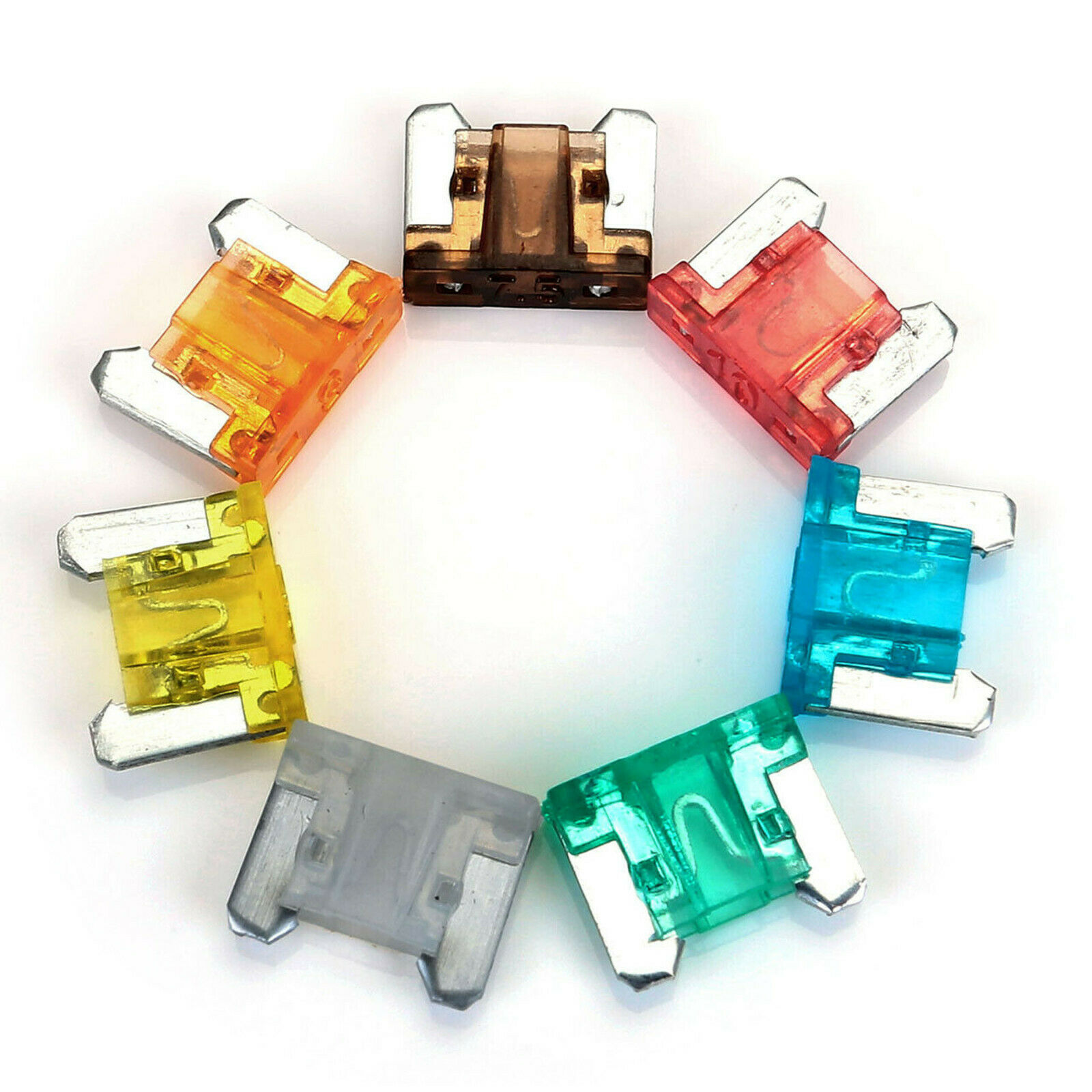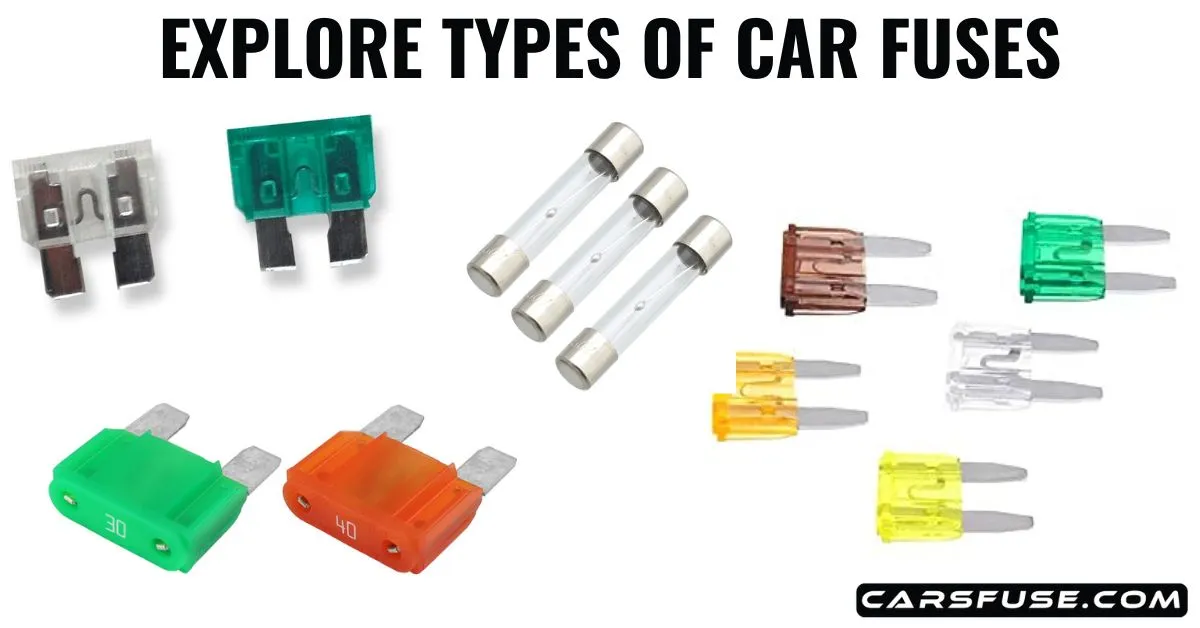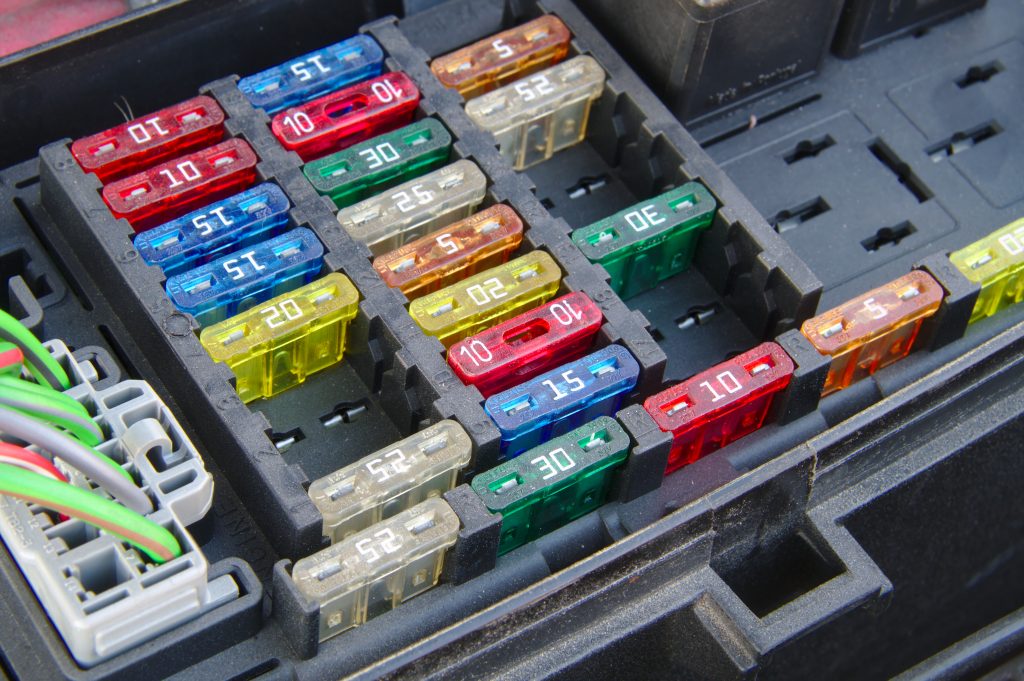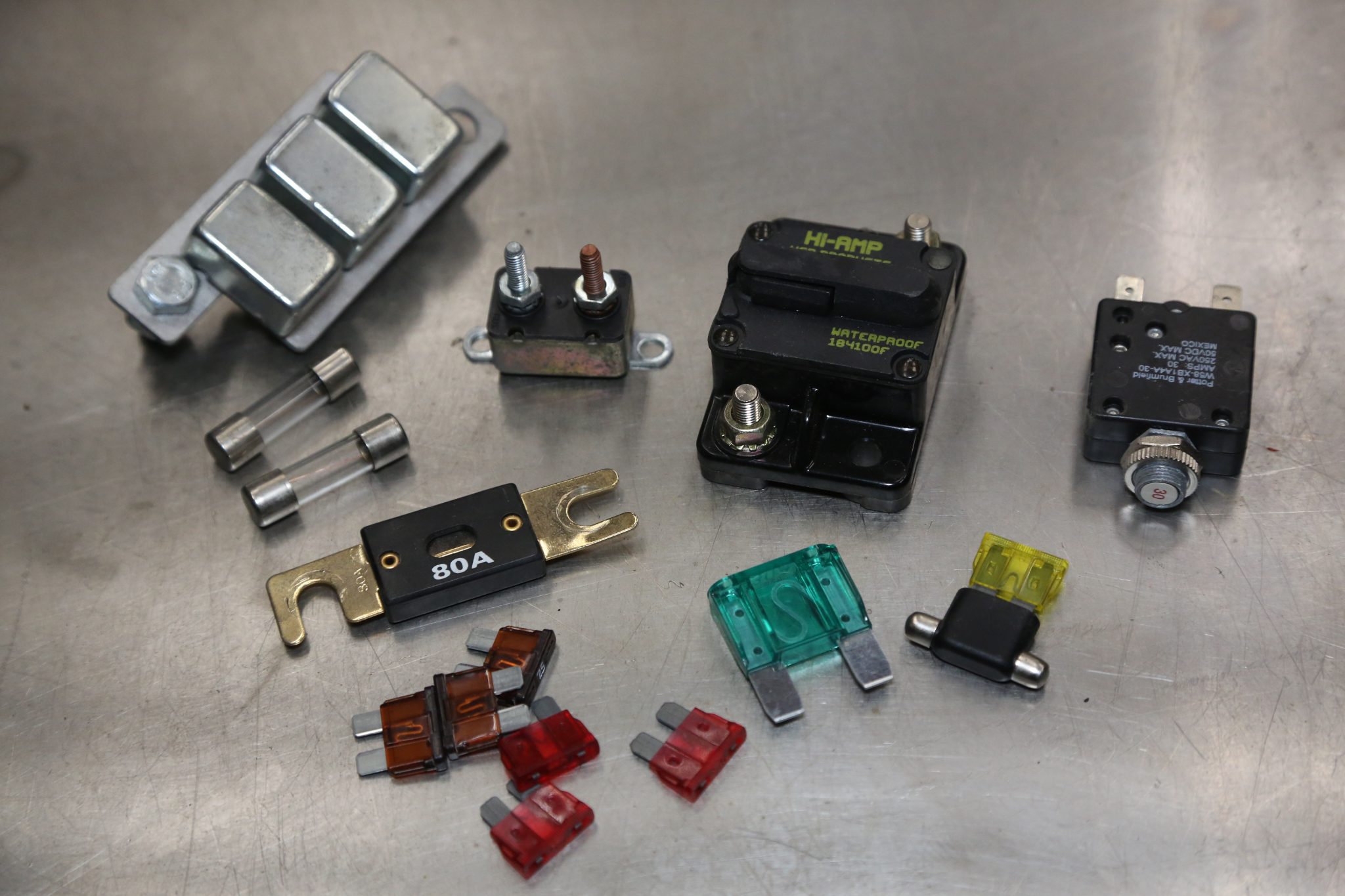Underrated Ideas Of Info About Do Cars Still Use Fuses

Do Cars Come With Extra Fuses? (Explained)
Do Cars Still Use Fuses? A Spark of Truth in a Digital World
1. The Enduring Role of Fuses
So, you're wondering if those little electrical lifesavers, fuses, are still hanging around in modern cars? The short answer is a resounding YES! Despite the ever-increasing complexity of vehicle electronics, and the arrival of sophisticated computer systems, fuses continue to play a crucial role in protecting your car's electrical circuits. They're like the unsung heroes, quietly standing guard against power surges and potential electrical meltdowns. Think of them as the tiny sacrificial lambs that prevent major damage to your car's brain and nervous system — the electronic components.
You see, even with all the fancy technology, things can still go wrong. A faulty wire, a malfunctioning component, or even a simple overload can send a surge of electricity through your car's system. Without a fuse to break the circuit, that surge could fry sensitive electronics, leading to expensive repairs and a very unhappy driver. Let's be honest, no one wants to deal with a car that suddenly decides the windshield wipers should only work at warp speed, or that the radio should only play polka music.
The thing is, while the core function of fuses remains the same, their design and integration have evolved quite a bit over the years. You won't necessarily find the old-fashioned glass tube fuses in most newer cars. Instead, you're more likely to encounter blade fuses, mini fuses, or even cartridge fuses, depending on the specific application and the car's manufacturer. These modern fuses are generally more compact, reliable, and easier to replace than their older counterparts.
But don't let the change in appearance fool you. They still operate on the same fundamental principle: a thin wire or strip of metal designed to melt and break the circuit when the current exceeds a certain level. It's a simple, elegant, and remarkably effective way to safeguard your car's electrical system. So, rest assured, fuses are alive and well, diligently protecting your ride from electrical gremlins.

Car Fuses And Fuse Boxes Types, Amps, Wiring Circuits EBay
Why Fuses Are Still Relevant in Modern Vehicles
2. Protecting Complex Electronics
You might think that with all the advanced electronic control units (ECUs), sensors, and complex wiring harnesses in today's cars, fuses would have become obsolete. After all, couldn't these sophisticated systems just regulate themselves? Well, not exactly. While modern car electronics are certainly capable of handling a wide range of operating conditions, they're not immune to unexpected surges or failures.
Imagine a scenario where a sensor malfunctions and starts sending incorrect data to the ECU. This could potentially cause the ECU to overwork a particular circuit, leading to excessive current flow. Without a fuse in place, that overcurrent could damage the ECU itself, resulting in a much more costly repair than simply replacing a blown fuse. In fact, replacing a fuse is a much cheaper and simpler fix.
Think of fuses as the last line of defense against electrical chaos. They're there to protect the delicate and expensive electronic components that make your car run smoothly. While ECUs and other systems have built-in protection mechanisms, fuses provide an additional layer of security, ensuring that a single component failure doesn't cascade into a major electrical disaster.
Furthermore, fuses are often used to protect individual circuits or components, allowing for a more granular level of protection. This means that if one circuit experiences a problem, the fuse will blow, isolating the issue and preventing it from affecting other systems. It's like having a series of circuit breakers in your home, each protecting a specific appliance or electrical outlet.

What Are The Most Common Car Fuses? (6 Types Of Fuses)
Types of Car Fuses You Might Encounter
3. A Variety of Electrical Protectors
As we touched on earlier, car fuses come in a variety of shapes and sizes. Knowing the different types can be helpful when you need to troubleshoot an electrical problem or replace a blown fuse. Let's take a quick look at some of the most common types you'll find in modern vehicles.
Blade Fuses: These are probably the most common type of fuse you'll encounter in newer cars. They have a flat, blade-like design and are color-coded to indicate their amperage rating. This makes it easy to identify the correct fuse for a particular circuit. Blade fuses come in several sizes, including standard, mini, and low-profile versions.
Mini Fuses: As the name suggests, these are smaller versions of blade fuses. They're often used in more compact fuse boxes or in circuits that require lower amperage protection. Despite their size, they offer the same level of protection as their larger counterparts.
Cartridge Fuses: These fuses have a cylindrical shape and are typically used for higher-amperage circuits, such as those powering the headlights or the power windows. They're often found in older vehicles, but some newer cars still use them for specific applications.
Fusible Links: Fusible links are essentially heavy-duty fuses designed to protect high-current circuits, such as the main power feed from the battery. They're usually located close to the battery and are designed to withstand significant amounts of current before blowing. They often look like a thicker section of wire. Always exercise extreme caution when dealing with high-current circuits!

Car,Fuse,Box,Closeup.,Multiple,Rows,Of,Different,Fuses,,One UruCar(ウルカー)
How to Identify and Replace a Blown Fuse
4. A Quick Guide to Electrical First Aid
So, you suspect you have a blown fuse. What do you do? Well, the first step is to locate your car's fuse box. Most cars have at least one fuse box, and some have multiple. The location of the fuse box is usually indicated in your owner's manual. Common locations include under the dashboard, in the glove compartment, or under the hood.
Once you've found the fuse box, you'll need to identify the fuse that corresponds to the circuit you're having trouble with. Your owner's manual should have a diagram of the fuse box, showing which fuse protects which circuit. If you don't have the manual, you can often find a diagram online or consult a mechanic.
After identifying the fuse, carefully remove it from the fuse box. You can use a fuse puller (often included in the fuse box) or a pair of needle-nose pliers. Inspect the fuse to see if the wire or strip of metal inside is broken or melted. If it is, the fuse is blown and needs to be replaced.
When replacing the fuse, make sure to use a fuse with the same amperage rating as the original. The amperage rating is usually printed on the fuse itself. Using a fuse with a higher amperage rating can be dangerous, as it could allow too much current to flow through the circuit, potentially damaging components or even causing a fire. Once you've replaced the fuse, test the circuit to see if the problem is resolved. If the fuse blows again immediately, there's likely a more serious electrical problem that needs to be diagnosed by a professional.

5 Different Types Of Fuses For Cars Jalopy Talk
The Future of Fuses in Automotive Technology
5. Evolving Protection Strategies
While fuses are likely to remain a part of automotive electrical systems for the foreseeable future, their role may evolve as technology advances. Automakers are constantly developing new and innovative ways to protect vehicle electronics, and some of these may eventually reduce the reliance on traditional fuses. I would not call fuses obsolete anytime soon.
One potential development is the increased use of solid-state circuit breakers, which are electronic devices that can automatically interrupt a circuit in the event of an overcurrent. Unlike fuses, solid-state circuit breakers can be reset after tripping, eliminating the need for replacement. They also offer faster response times and more precise current limiting.
Another trend is the integration of more sophisticated diagnostic and protection features into ECUs. These systems can monitor the current flow in individual circuits and automatically shut them down if a problem is detected. This level of integration could potentially reduce the need for individual fuses in some applications.
However, even with these advancements, fuses are likely to remain a cost-effective and reliable way to provide basic overcurrent protection. They're also relatively simple to understand and troubleshoot, which makes them appealing to both mechanics and car owners. So, while the future of automotive electrical systems is undoubtedly changing, fuses are likely to remain a part of the picture for quite some time.

All About Vehicle Electrical Fuses
Frequently Asked Questions (FAQs)
6. Your Burning Fuse Questions Answered
Let's tackle some common questions about car fuses:
Q: What happens if I use a fuse with a higher amperage rating than the original?
A: Using a fuse with a higher amperage rating is extremely dangerous. It allows more current to flow through the circuit than it's designed to handle, potentially damaging components, melting wires, and even causing a fire. Always use a fuse with the correct amperage rating.
Q: Can I use a fuse with a lower amperage rating than the original?
A: While it's generally safer than using a higher amperage fuse, using a lower amperage fuse isn't ideal. It may cause the fuse to blow prematurely, interrupting the circuit unnecessarily. If the design calls for an amperage of X, use X. Its safer, yes, but will impact operations.
Q: My fuse keeps blowing. What could be the problem?
A: If a fuse keeps blowing, it indicates an overcurrent condition in the circuit. This could be caused by a short circuit, a faulty component, or an overload. It's best to have a qualified mechanic diagnose and repair the problem to prevent further damage.
Q: Where can I buy replacement fuses?
A: Replacement fuses are readily available at most auto parts stores, gas stations, and even some hardware stores. They're relatively inexpensive, so it's a good idea to keep a spare set in your car in case of an emergency.